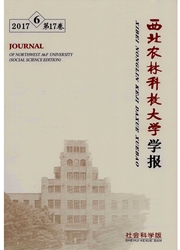

 中文摘要:
中文摘要:
建国以来中国民间组织管理体制几经变革,形成了现在以纵向控制为主要特征的管理体制。这种体制有利于政府自上而下地培育民间组织,有利于实现对民间组织的调控,有利于引导民间组织沿着正确的政治方向发展。但随着民间组织以及经济社会的发展,这种管理体制的局限性和弊病也逐渐暴露出来,出现了民间组织非均衡发展、"规制过剩"与"规制匮乏"并存、对民间组织事实上监管缺位等现象。优化民间组织管理体制的基本思路是:逐步从政府选择模式向社会选择模式转变,从重视"入口"管理向重视"过程"监督转变,从纵向控制向横向合作转变,从限制分支和非竞争性原则向适度竞争原则转变。
 英文摘要:
英文摘要:
After several reforms,the administrative system of the civil organizations in China is principally characteristic of "longitudinal control" since the founding of New China.The benefit of the management system is that it is good for the government to foster the civil organizations from top to bottom,and it is good for the government to adjust and control the civil organizations in order to keep civil the organizations develop in the correct political orientation.But with the development of the civil organizations and of economy and society,the defects and limitations of the administrative system with inequitable development of the civil organizations,deficiency and sufficiency of the system,etc.gradually exposed.The path to optimize the administrative System is to achieve the change of the principle of the administration from the choice of government to the choice of society,from the regarding of entrance to the regarding of process,from vertical control to horizontal mutuality,from non-rivalry to competition.
 同期刊论文项目
同期刊论文项目
 同项目期刊论文
同项目期刊论文
 期刊信息
期刊信息
